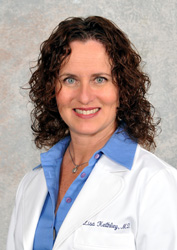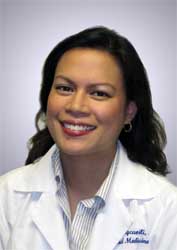Category Archives: Family Health
Dr. Timothy Klepper on QACTV
Sadness – or Depression?
By Cecily Agcaoili, MD
Sadness can be confused with depression. You may feel sad after something bad has happened, like a relationship breakup, problems on the job or in school, or trouble with friends or family, but the feelings are normal and usually pass with time.
Depression is a medical condition with symptoms that last longer than two weeks. There is no simple answer for why depression happens. It can be brought on by unhappy events, illness or emotional stress, childbirth or weaning, but often there is no direct cause. Some people have genetic predispositions that make them prone to depression.
When it doesn’t go away
You may be suffering from depression if you continue to experience any of these symptoms for an extended time:
- Feeling sad or having a depressed mood
- Loss of interest or pleasure in activities you once enjoyed
- Changes in appetite — weight loss or gain unrelated to dieting
- Changes in sleep patterns – trouble sleeping or sleeping too much
- Loss of energy or increased fatigue
- Increase in purposeless physical activity (e.g., hand-wringing or pacing) or slowed movements and speech
- Feeling worthless or guilty
- Difficulty thinking, concentrating, or making decisions
- Thoughts of death or suicide
People with depression may also experience other problems, such as anxiety or panic attacks. They may also experience increased headaches, back or neck pain, or stomach discomfort.
Unfortunately, people who don’t understand that depression is a medical condition may treat it as a personal failure. They may tell you to “snap out of it” “or “pull yourself up.” Comments like that may cause a person who is depressed to feel worse. They may try to treat their symptoms with alcohol or drugs. These can help you feel better for a while but leave you feeling worse in the long term.
| Take this quick quiz to see if you may be affected by depression. |
Time for help
If you have been experiencing symptoms for at least two weeks without improvement, it’s important to get professional help. Your MPCP doctor or mental health professional can guide you through evaluation and treatment.
For many people, talking to a counselor or therapist helps them understand their depression and how to work toward recovery. In some cases, antidepressant medications can help and may be added to treatment.
Getting help can make a big difference in how quickly a person recovers. If you or someone you know is suffering from depression, seek help soon and take back control of your life.
Dr. Agcaoili is certified by the American Board of Internal Medicine and sees patients in MPCP’s Columbia office.
Well-Child Visits: Foundation for a Healthy Life
A Q&A with Dr. Jamie Harms
Dr. Harms explains why children, like adults, should see their doctor for annual checkups.
Q: My child isn’t sick. Why should they get a checkup?
A: A yearly checkup – known as a “well-child visit” ─ helps monitor your child’s development and can spot potential health problems. The visits also help your child develop a positive relationship with their doctor, a relationship that will become the foundation of good health care throughout your child’s life.
Most parents are good about bringing babies and preschoolers in for regular appointments, but after children start school, visits tend to drop off. When that happens, we miss a lot of opportunities to help kids grow up healthy.
Q: What happens during a well-child visit?
A: We track your child’s growth and development, including their vision. It’s surprising how many kids start school with vision problems, which can impact their ability to learn. We can help detect issues so kids can do well in school.
Children change a lot in 12 months, and we can tell you what to expect in the coming year. If you have questions or concerns about your child’s health, we can answer your questions and direct you to health resources.
We can help teach your child good health habits, like eating healthy, getting enough sleep, and balancing screen time with active play time. The annual visit is also a good place for kids to learn how to deal with social pressures they will encounter at various ages, including relationships, drinking and drugs.
Q: What else happens in the appointment?
A: We will make sure your child receives any needed immunizations, including measles, polio, tetanus, diphtheria, pertussis and influenza (flu). Kids who don’t see their doctor regularly miss these vaccines and are at higher risk for serious illness. In fact, many college-age kids have missed important immunizations, even though some diseases are most likely to occur in the teenage years, such as human papillomavirus (HPV) and meningitis.
Q: What problems do you typically see?
A: There’s a big problem with children not getting enough physical activity. With too much time spent watching TV, playing video games or being on their phones, many kids don’t build bone strength or develop good cardiovascular health. Inactivity during childhood can lead to serious problems later, including obesity, heart disease and diabetes.
Also, some of the kids we see don’t get enough sleep. We live a crazy 24-hour society, and children get drawn into that. Kids ages 6-13 need 9-11 hours of sleep each night, and teens need 8-10 hours. Lack of sleep can cause emotional and behavioral problems and poor performance in school.
Q: When should my child get a checkup?
A. It’s a helpful reminder to schedule the visit near your child’s birthday each year. And many MPCP offices have extended hours, so you don’t have to pull your child out of school.
Setting good health habits early makes a real difference. The whole idea of staying healthy starts with seeing the doctor once a year. It’s never too early to start building a healthy life.
The Worst Drinks For Kids
Q&A on sugary beverages by Lisa Goldberg Keithley, M.D.
Q: Kids love sweet drinks. What’s wrong with that?
A: Many children’s drinks are loaded with added sugar and have little nutritional value. According to the CDC, sugary beverages are a main factor in the rise of childhood obesity. And kids who consume a lot of sweet drinks may not be getting enough vitamins, calcium and other nutrients.
Q: How much sugar should kids get each day?
A: Most kids consume too much sugar. The American Heart Association recommends they get no more than 3 teaspoons of sugar per day, but kids ages 4-8 typically consume 21 teaspoons per day.
Q: Do some children’s drinks have too much sugar?
A: There are definitely some popular drinks you should avoid giving to your kids. They are low in nutrients and are loaded with sugar. Here are a few of them:
- Hi-C®: This longtime favorite is low in fruit juice ─ just 10% ─ but is high in added sugar. One 6.75-ounce carton has 6 teaspoons of sugar. That’s more sugar per ounce than in a regular Coke.
- Hawaiian Punch®: Not much juice in this drink ─ only 5% ─ but 8 ounces contain 4 teaspoons of sugar.
- SunnyD®: It may look like orange juice, but it’s really only 5% juice. A 6.75-ounce bottle has almost 3 teaspoons of sugar.
- Capri Sun®: One little 6-ounce pouch has a big 4 teaspoons of added sugar.
- Sodas: A 12-ounce can of regular Coke® contains almost 10 teaspoons of sugar. That’s more than three times the recommended daily allowance of sugar in just one drink!
Q: If sweet drinks are a bad choice, what’s the alternative?
A: Fortunately, there are healthier alternatives to giving your child “liquid sugar”. They include:
- Wonderful water: Water is the ultimate thirst quencher and contains no sugar or calories. The Institute of Medicine recommends that kids ages 4-8 get about 5 12-ounce glasses of water each day. Older kids and teens should get 5-8 glasses.
- Marvelous milk: Milk is rich in nutrients, such as calcium, vitamin D, and potassium, which are important for healthy bones and preventing cardiovascular disease and type 2 diabetes. The American Academy of Pediatrics recommends kids ages 2-5 drink 2 cups of milk daily. However, too much milk can lower the body’s iron stores.
- Great juice: Pure fruit juice ─ not juice drinks ─ is packed with vitamins and other nutrients. However, juice also contains a fair amount of natural sugar, so mind your child’s daily intake:
6-12 months old: 2-4 ounces
1-6 years old: 4-6 ounces
7-18 years old: 8-12 ounces
And remember, juice shouldn’t replace eating apples, oranges, grapes and other fruits — which are an important and nutritious part of a child’s diet.
 Dr. Keithley practices in MPCP’s Arnold office. She received her medical degree from Drexel University College of Medicine, and completed her residency program in Family Practice at Chestnut Hill Hospital. She is certified by the American Board of Family Practice.
Dr. Keithley practices in MPCP’s Arnold office. She received her medical degree from Drexel University College of Medicine, and completed her residency program in Family Practice at Chestnut Hill Hospital. She is certified by the American Board of Family Practice.




